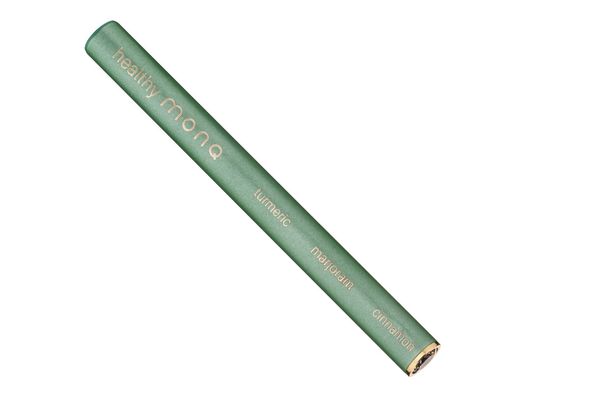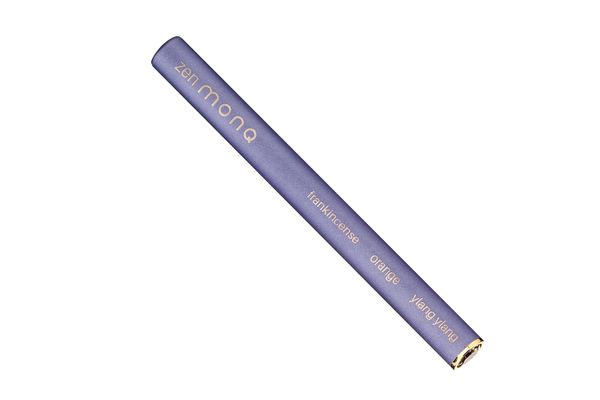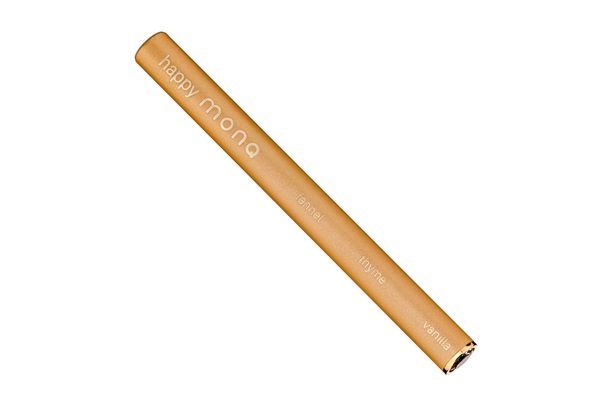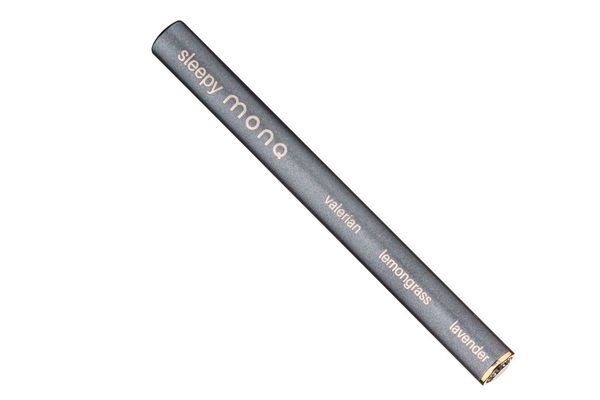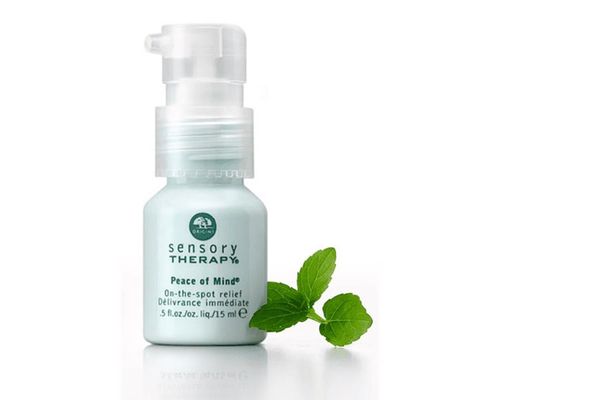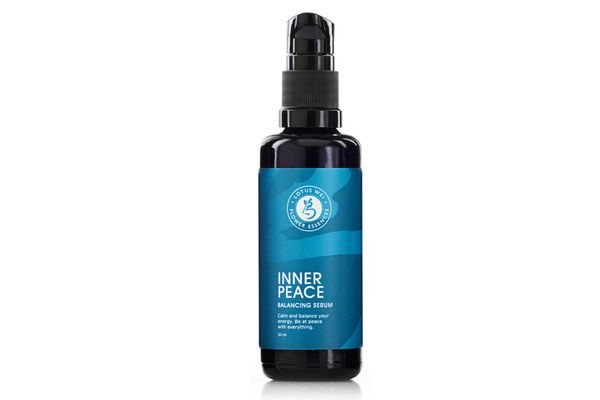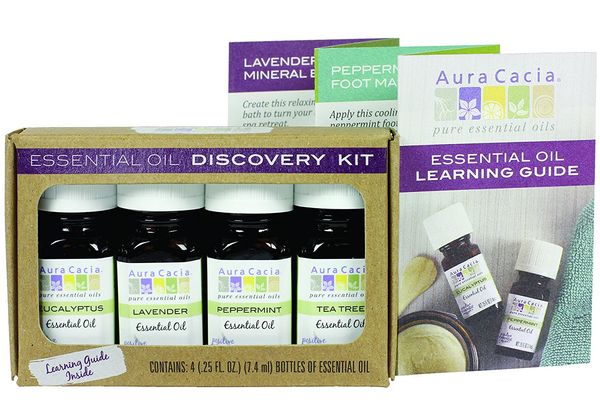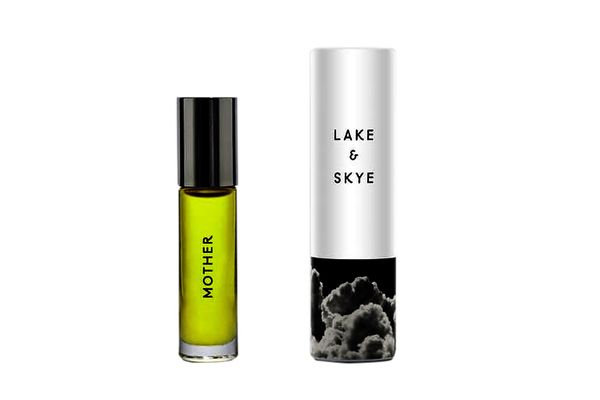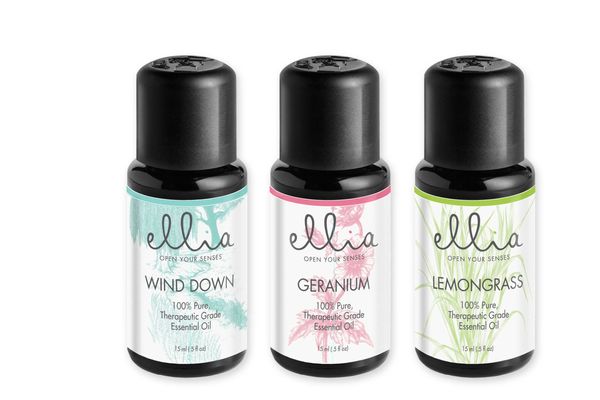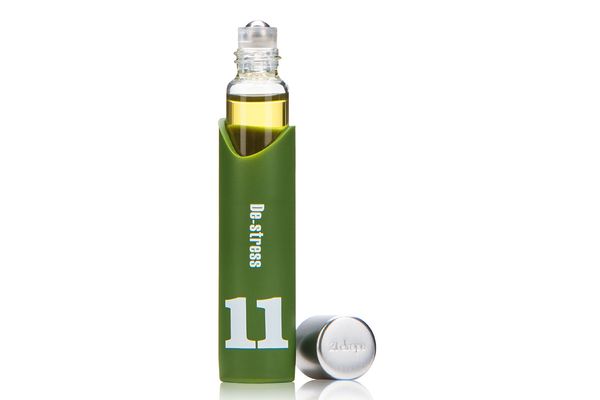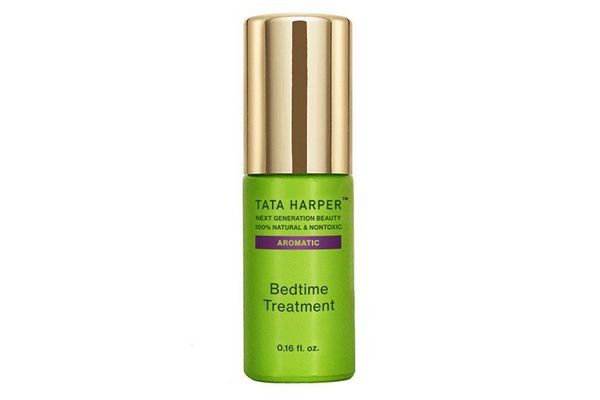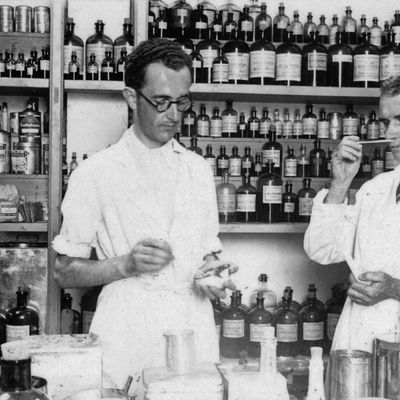
If you’ve read about essential oils recently and wondered to yourself, “Is this for real?” you’re not alone. Call it a by-product of the green-juice-drinking, crystal-collecting movement, but essential oils (we’re talking about the kind you smell rather than the topical treatments) have become the latest wellness treatment adopted by activated-charcoal drinkers evangelizing about “gut health.” Various oils have been said to do everything from relieve stress and increase libido to restore energy and lower blood pressure. I for one am a recent convert to inhaling serums and scent treatments, but can smelling something really transform the body and mind? Is it all just bullshit? In an attempt to find out (and God knows I could use some relief from the stress induced by the current news cycle), I decided to investigate.
I talked to Dr. Pamela Dalton, an olfactory-research scientist at the Monell Center in Philadelphia, and asked her point-blank whether essential oils work as aromatherapy. She was measured in her response. “The good studies are difficult, maybe impossible to do,” she says, “and I don’t know that the direct pharmacological effect of these materials are ever more important than the psychological effect.” With essential oils, it may be a case of mind over matter.
The olfactory bulb, Dr. Dalton notes, is connected to the amygdala (responsible for emotional reactions) and to the hippocampus, which stores memories (a fact Old Spice mined to great effect years ago with those “Scent is the strongest sense tied to memory” commercials). That also makes the olfactory bulb very susceptible to outside influences. “Smell is an extremely malleable sense,” says Dalton, “We are very easily primed by our expectations by how an aroma is supposed to make us feel.” There are plenty of psychological studies in which subjects learn to associate foreign smells positively or negatively. In one study, a drama student and subject were given the same odors to smell, and the subject mimicked the actor’s (positive or negative) reaction almost every time. So, if someone (or something like, say, a bottle’s label) tells you to feel a certain way, you might just.
As someone who’s mindful of what goes into my body, though, my real question was whether the stuff can be harmful. Dalton actually encourages their use, and in my own research (I actually own a dusty copy of The Encyclopedia of Aromatherapy), I discovered that reactions to essential oils are extremely rare. Unless you have chemical sensitivities or acute allergies, you should be fine. If you’re unsure, do a patch test — use a dropper to place a drop on a cotton pad and lightly sniff. Some oils — like tea tree, ginger, nutmeg, and pine — are more likely to trigger reactions in sensitive individuals, though your own mileage may vary.
With essential oils (as with yoga or massages or elevator music), they work if they work for you. Certain smells relax you because they bring up positive associations (grandma, gardens, that really hot yoga teacher), and not necessarily because they have discrete prescriptive benefits — as long as you like them, there’s no need to overthink it. “If you like what you smell, you take deeper, slower breaths,” says Dalton. “Just the act of doing that has a calming, beneficial effect. Aromatherapy works, but maybe not for the reason people think it’s working.” It’s not that aromatherapy is a sham — it just may be that the simple act of smelling something nice creates pleasure (or calm or sleepiness). That was all the answer I needed. Placebo effect or not, I, for one, will continue to enjoy essential oils guilt-free.
The new MONQ pens marry two trends (essential oils and vaping), and I became curious after reading about them in a Wall Street Journal story — I found them to be an absolute pleasure to use. With cinnamon, turmeric, and marjoram, the Healthy MONQ hits the trifecta of anti-inflammatory ingredients, though I wouldn’t venture to say they undo a Lohan-esque lifestyle.
Supposedly helps you achieve a higher state of being, though I just like inhaling the scent of frankincense, orange, and ylang-ylang.
I certainly feel happier thanks to the vanilla and thyme, though the addition of anise-scented fennel may throw some licorice haters off.
This may be the closest MONQ can come to actually claiming medicinal properties, as lavender, lemongrass, and (especially) valerian have been known to induce sleep.
Unlike MONQ, a more traditional form of aromatherapy to be dabbed on pulse points. If odors are deeply entwined with psychology, then that would explain why I still enjoy this. The peppermint zing reminds me of my lovely mom (an early adopter of Origins way back in the ’80s) and the heady optimism I had at my first magazine job in the 2000s.
A more-current favorite essential-oil aromatherapy I’ve tried is Inner Peace, created by the flower-essence brand Lotus Wei. The collection is all great, but I like to squirt the serum on the palms, rub them together, breathe in, and imagine I’m in a tropical, fruity, serene headspace — like the best hotel room on Kauai, or maybe what Moana’s hair smells like.
I spotted this line at Whole Foods, and sniffed the lavender, eucalyptus, and frankincense — which has been shown in studies to reduce inflammation (unless you’re a lapsed Catholic, in which case it may induce hives).
Designed for new mothers and handcrafted in small batches in a “high vibrational environment,” apply this blend (bergamot with neroli and jasmine in a jojoba and coconut-oil base) to pulse points and inhale.
Scents like lemongrass, orange, and grapefruit allow you to make your own concoctions, while prescriptive oils like “Wind Down” or “Be Centered” are meant to be used alone. If you have a diffuser, place five to seven drops in it — if not, mix the concentrate in with carrier oil like jojoba.
We’ve extolled the virtues of Tata Harper’s aromatic treatments before, but there’s a whole world of T.H. aromatherapy to experience, including her signature bedtime scent with calendula and alfalfa, and love potion with sunflower oil and meadowsweet.
The Strategist is a new site designed to surface the most useful, expert recommendations for things to buy across the vast e-commerce landscape. Some of our latest conquests include the best notebook, black T-shirts, fashion-editor-approved jeans, toothbrush, and apartment décor. Note that all prices are subject to change.
If you buy something through our links, New York may earn an affiliate commission.
